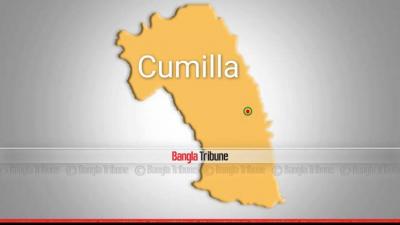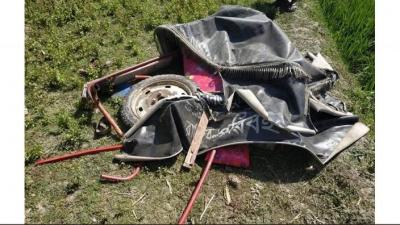 Farmers in Brahmanbaria have reduced cultivation of jute, despite the satisfactory yield this season.
Farmers in Brahmanbaria have reduced cultivation of jute, despite the satisfactory yield this season.
They have complained of losses due to high production costs.
Some farmers have refused point blank to cultivate jute any longer.
According to them, the production cost of a ton of the fiber is Tk 1,500 to Tk 1,600. The highest they can sell per ton is Tk 800.
In short, not only is there no profit, they are unable to recover their production cost.
Majid Khan, a farmer of Brahmanbaria’s Sultanpur area said, “There was a time when jute was known as the golden fiber. I used to plant jute over a 2.5 acre land. Now I only cultivate on two kani (60 percent) of land to use as fuel.”
“Few farmers in Brahmanbaria still cultivate Kenaf, Tosha and Mesta jute only to preserve the long standing legacy of their forefathers.”
The farmers have complained, “If the government was more attentive, jute production would have increased. There are no government officials in the field during the planting season to guide us.”
“We have no help from the Farming division and there have been no advancements in the farming techniques either.”
They also said farmers of the area were forced to sell jute to seasonal brokers every year, due to the market price of jute not being fixed. On the other hand, brokers have complained of losses due to there being no fixed prices for the jute.
On the other hand, brokers have complained of losses due to there being no fixed prices for the jute.
They said “We faced losses for not being able to sell the jute for appropriate prices. If the prices are not fixed, there will be losses once more.”
They have urged the government to fix the price of jute.
Deputy Director of the Department of Agricultural Extension said “We try our best to help the farmers with correct advice. It is not true that the field officers are not there to help.”
According to him, jute has been planted in 3700 hectares of land this year which is 50 hectares less than last year.
Specialists have said farmers have reduced cultivation of jute due to adverse weather conditions and not getting the fair price.
However, the Agriculture Department hopes that it will be possible to produce 36,100 bales of jute this year.
 Country
Country
41229 hour(s) 54 minute(s) ago ;
Afternoon 04:48 ; Monday ; Jun 30, 2025
Farmers in Brahmanbaria turn away from jute plantation
Send
Ujjal Chakraborty, Brahmanbaria
Published : 06:00, Sep 02, 2018 | Updated : 18:01, Sep 07, 2018
Published : 06:00, Sep 02, 2018 | Updated : 18:01, Sep 07, 2018
0 ...0 ...
/st/hb/
Topics: Top StoriesExclusive
- KOICA donates medical supplies to BSMMU
- 5 more flights to take back British nationals to London
- Covid19: Rajarbagh, Mohammadpur worst affected
- Momen joins UN solidarity song over COVID-19 combat
- Covid-19: OIC to hold special meeting
- WFP begins food distribution in Cox’s Bazar
- WFP begins food distribution in Cox’s Bazar
- 290 return home to Australia
- Third charter flight for US citizens to return home
- Dhaka proposes to postpone D8 Summit
Unauthorized use of news, image, information, etc published by Bangla Tribune is punishable by copyright law. Appropriate legal steps will be taken by the management against any person or body that infringes those laws.
Bangla Tribune is one of the most revered online newspapers in Bangladesh, due to its reputation of neutral coverage and incisive analysis.
F R Tower, 8/C Panthapath, Shukrabad, Dhaka-1207 | Phone: 58151324; 58151326, Fax: 58151329 | Mob: 01730794527, 01730794528






